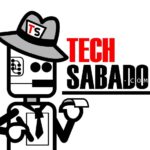TECH NEWS | Pervasive, reliable internet: A critical weapon to fight pandemic
The COVID Action Network, made up of civil society organizations and youth groups, emphasized the important role of Internet connectivity as a weapon to defeat the ongoing COVID-19 pandemic.

Man sending message by laptop.
MANILA, PHILIPPINES — The COVID Action Network, made up of civil society organizations and youth groups, emphasized the important role of Internet connectivity as a weapon to defeat the ongoing COVID-19 pandemic.
In a statement on “Accelerating the Improvement of PH Internet as a Lifeline amid COVID-19,” 67 organizations and 38 individuals called on the government, through the Inter-Agency Task Force on Emerging Infectious Diseases (IATF-EID), to put in place immediate solutions for expanding Internet coverage and helping ease broadband network rollout. The proposals were likewise sent to the Department of Information and Communications Technology (DICT).
“The internet could provide real-time information for decision-making to fight COVID-19, and it allows people to work from home (WFH), use e-commerce platforms, avail of telehealth services, communicate with friends and family, among other things,” said Filomeno Sta. Ana III, Action for Economic Reforms (AER) coordinator. “For both the government and the general public, access to the internet means access to applications and technological solutions for mobile banking and digital payments, making social protection program transfers quick, costless, traceable, and transparent.”
One of the groups’ recommendations is for the IATF to instruct the DICT to procure, on an emergency basis, the services of Internet Service Providers (ISPs) to install facilities and provide internet services using any type of technology to establishments such as hospitals, quarantine/isolation facilities, health centers, city/municipal halls, and barangay halls.
Furthermore, the organizations suggested that the task force must recommend to the President the issuance of policies that lower market entry barriers to encourage more investment for a robust digital infrastructure.
“The President must issue an Executive Order that allows ISPs and value-added service providers to connect directly to international satellites for broadband connectivity, and mandates tower and passive infrastructure sharing,” AER said. “This must be implemented especially for the unserved and underserved areas in the country.”
The organizations also suggested that small ISPs, especially those who wish to rollout data networks in the underserved and unserved areas, must be provided with a loan facility.
“The President must direct the Development Bank of the Philippines (DBP) and encourage private lending institutions to create a loan facility for micro, small, and medium-sized ISPs,” the civil society organization said.
Finally, the groups suggested to authorize the Department of Interior and Local Government (DILG) and the Anti-Red Tape Authority (ARTA) to review and recommend revisions to the licensing and permitting requirements of local government units (LGUs) and national government agencies (NGAs) that may be causing unnecessary delay in the deployment of internet facilities, especially during an emergency.
The organizations urged the government to focus on medium- and long-term policy reforms that will sustainably promote the development and propagation of ICT infrastructure.
“We cannot succeed in our fight against COVID-19 unless we address the issues surrounding the country’s internet coverage and quality of service,” the group said. “This is the most opportune time for the government to legislate the proposed Open Access in Data Transmission Act, and work on amendments to the Public Telecoms Policy Act that are pending in Congress. As we establish the “new normal,” pervasive, secure, and affordable Internet would be vital to keep everyone connected with their family, work, school, business, and the rest of the world.”



